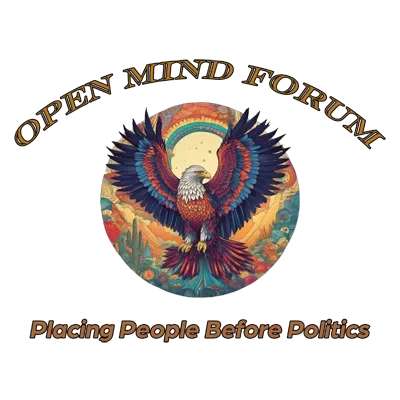Analyzing The Monolingualism of the Other
Derrida Focusing on Belonging through Language and Identity
Derrida focusing on Belonging is the focus on this post. In The Monolingualism of the Other, Jacques Derrida confronts the intersections of language, identity, and belonging with piercing insight. His exploration unfolds in the context of colonialism and identity, drawing from his own experiences as an Algerian-born Jew forced into the French language by colonial powers. Derrida argues that language, often mistaken as a natural extension of one’s identity, operates instead as an instrument of control and estrangement. He posits that no one truly “owns” a language; rather, language owns us, binding individuals to histories, expectations, and identities they did not choose.
Derrida’s ideas resonate strongly with the works of Martin Heidegger and Emmanuel Levinas. Heidegger viewed language as the “house of Being,” a fundamental aspect of identity. However, Derrida’s interpretation adds a profound twist: the “house” of language is one where individuals remain

perpetual strangers. Through Derrida focusing on belonging within language, he introduces a paradox—the more one tries to belong to a language, the more apparent their alienation becomes. He argues that language imposes identities that individuals must navigate but never fully internalize, as it is laden with the socio-political baggage of colonial and national powers.
Derrida’s concept of “monolingualism” underscores this estrangement. For instance, he explains how French colonial rule imposed the French language on Algerian Jews, effectively erasing their native languages. As Derrida himself was stripped of Arabic and Berber influences, French became both his only means of self-expression and an alienating force. This example illustrates Derrida’s argument that language, when forced upon a population, becomes an instrument of domination rather than a tool of connection. Language, as a result, enforces a political identity that limits the scope of true self-expression (Young, 2001).
Derrida Focusing on Belonging and the Myth of Linguistic Purity
Derrida’s work also critiques the concept of linguistic purity, a topic that reverberates throughout his analysis. He argues that monolingualism imposes a myth of linguistic purity, upheld by language policies that often strive to eliminate perceived “impurities.” For example, policies in France aimed at preserving a “pure” form of French ultimately exclude individuals who speak regional dialects or mixed languages. Derrida’s critique of this purity highlights how belonging to a language can become a form of exclusion. Language, rather than welcoming diverse expressions, thus operates as a gatekeeper, denying access to those who do not conform.
This critique of purity aligns with Derrida’s broader deconstructive project, which seeks to dismantle binaries and question fixed identities. For Derrida, focusing on belonging reveals how linguistic purity acts as a hegemonic construct, one that oppresses individuals by restricting the linguistic resources available to them. The myth of purity establishes a false dichotomy: “pure” speakers versus those who “pollute” the language. Derrida underscores that this division is a political fabrication, not an inherent truth (Norris, 2003). Thus, his critique extends to challenge language’s role in reinforcing class and ethnic hierarchies under the guise of cultural preservation.
Belonging and the Double Bind of Identity
In Derrida’s view, language imposes what he terms a “double bind” on identity: while individuals depend on language for self-expression, language itself alienates them by being shaped by external powers. This notion emerges through Derrida focusing on belonging in colonial contexts, where colonizers imposed their languages on subjugated peoples. A powerful example here is Derrida’s discussion of Algerian Jews who, by adopting French, simultaneously lost their connection to both Arabic and Berber roots. This double bind reveals the way language alienates individuals from both their

heritage and the adopted language, leaving them in a space of cultural and existential exile.
Derrida illustrates this double bind with his personal reflections. While French is his primary language, he emphasizes that it was never a language he “chose” or “owned.” The French language became a paradoxical force: essential for survival yet emblematic of oppression. Derrida’s experience underscores his argument that individuals cannot fully belong to a language imposed upon them. His term “prosthesis of origin” captures this complex relationship; language serves as an artificial origin, one that does not authentically connect individuals to their identity (Bennington, 1993). By interrogating this double bind, Derrida challenges the concept of a coherent, singular identity rooted in language.
Derrida Focusing on Belonging Beyond Language: The Role of the “Other”
Derrida’s analysis does not stop at language alone; he extends his exploration into ethical territory, particularly the relationship with the “Other.” Here, Derrida’s thinking aligns with Emmanuel Levinas’s work on ethical responsibility to the Other. Levinas argued that the face-to-face encounter with the Other forms the basis of ethics, emphasizing an ethical relationship that transcends language. Derrida adopts and transforms this concept, suggesting that even within language, individuals encounter a form of the Other, an aspect that always eludes complete understanding or control.
Derrida’s emphasis on the “Other” within language reflects his broader critique of identity. By focusing on belonging, Derrida highlights that language itself embodies otherness. Every act of communication involves a negotiation with forces that extend beyond the speaker’s intention or control. This idea challenges the notion of language as a medium for direct, transparent expression. Instead, Derrida insists that language inherently carries elements that escape mastery, making true belonging within language not only difficult but fundamentally impossible.
Language as a Site of Power and Exclusion
Ultimately, Derrida focusing on belonging leads him to examine the political implications of linguistic identity. Language, he argues, functions as a site of power and exclusion, where dominant groups establish linguistic norms that marginalize those outside the cultural center. Derrida’s analysis invites readers to rethink language policies, especially those that reinforce national or cultural superiority. This political critique remains relevant as debates over linguistic purity and cultural preservation continue to shape modern societies. By questioning who “belongs” to a language, Derrida exposes how linguistic hierarchies often reflect broader systems of oppression.
In critiquing language as a site of power, Derrida underscores the potential for language to enforce and legitimize inequality. His insights resonate with contemporary discussions in postcolonial theory and sociolinguistics, where scholars examine the ways language policies impact marginalized communities. Derrida’s focus on belonging thus serves as a call for a more inclusive understanding of linguistic identity, one that acknowledges language’s inherent plurality and resistance to singular, fixed identities.
Sources Cited
– Derrida, J. (1998). The Monolingualism of the Other; or, The Prosthesis of Origin. Stanford University Press.
– Norris, C. (2003). Derrida (2nd ed.). Routledge.
– Young, R. (2001). Postcolonialism: An Historical Introduction. Blackwell.
– Bennington, G. (1993). Jacques Derrida. University of Chicago Press.
Suggestions for Future Reading
- Norris, C. (2003). Derrida – Provides a comprehensive introduction to Derrida’s philosophy and influence.
- Young, R. (2001). Postcolonialism: An Historical Introduction – Analyzes colonial power structures in language.
- Spivak, G. C. (1988). Can the Subaltern Speak? – Discusses the role of language in marginalizing voices.
- Bennington, G. (1993). Jacques Derrida – Explores Derrida’s life and major philosophical contributions.
- Bhabha, H. K. (1994). The Location of Culture – Examines hybridity and cultural identity, resonating with Derrida.
- Foucault, M. (1980). Power/Knowledge – Foundational text on language, power, and knowledge structures.
- Levinas, E. (1969). Totality and Infinity – Discusses ethics of the “Other,” which influenced Derrida.
- Heidegger, M. (1971). Poetry, Language, Thought – Examines the essence of language, echoing Derrida.
- Said, E. (1978). Orientalism – Critiques Western representations of the East, relevant to Derrida’s colonial analysis.
Disclaimer: The images and videos in this post are AI-generated creations, intended purely for illustrative and conceptual purposes. They are not real-life representations and should not be interpreted as such. Their sole purpose is to offer a visual means of exploring the topics discussed in this post.




